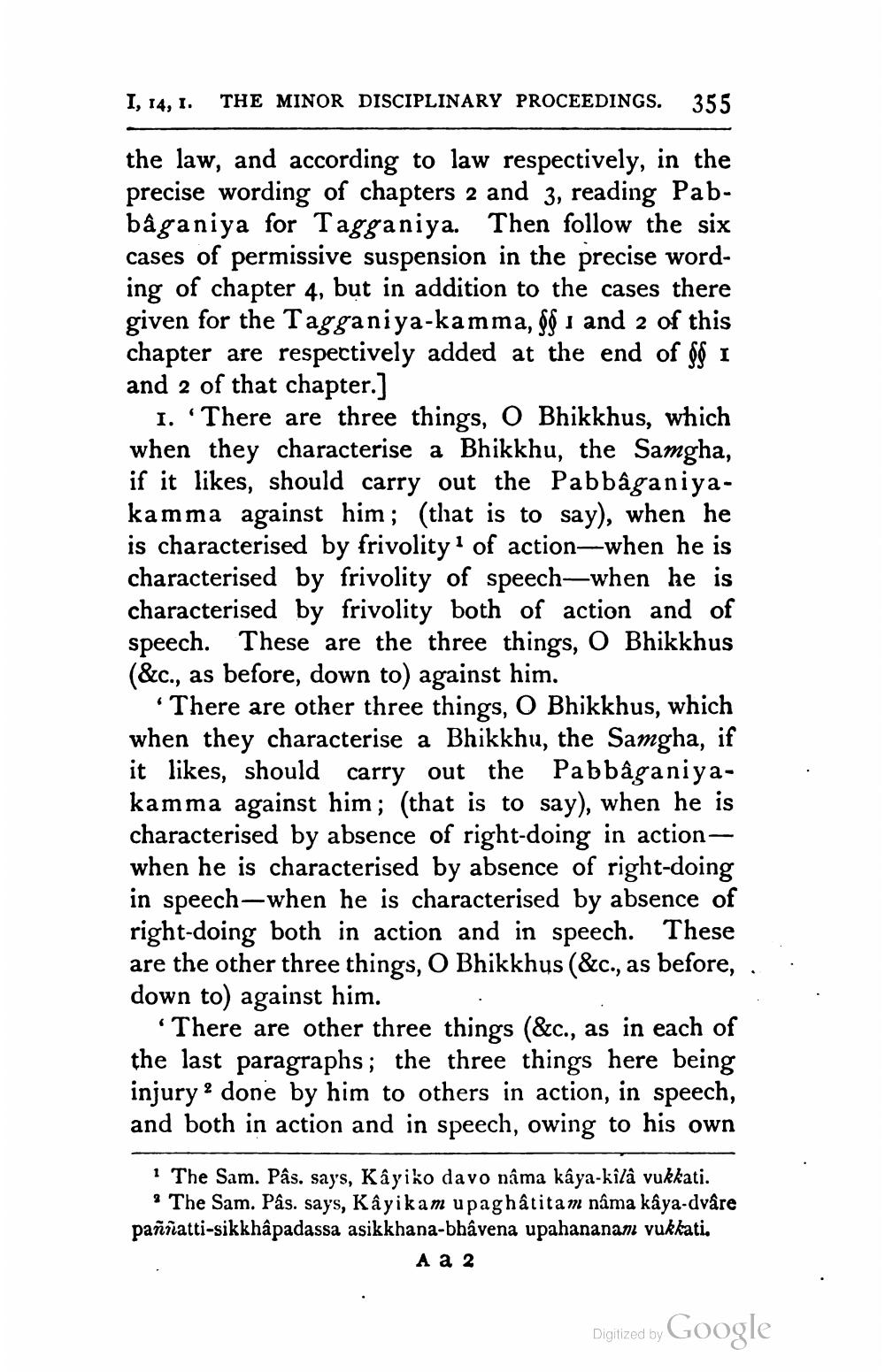________________
I, 14, 1. THE MINOR DISCIPLINARY PROCEEDINGS. 355
the law, and according to law respectively, in the precise wording of chapters 2 and 3, reading Pabbâganiya for Tagganiya. Then follow the six cases of permissive suspension in the precise wording of chapter 4, but in addition to the cases there given for the Tagganiya-kamma, S$ 1 and 2 of this chapter are respectively added at the end of g 1 and 2 of that chapter.]
1. 'There are three things, O Bhikkhus, which when they characterise a Bhikkhu, the Samgha, if it likes, should carry out the Pabbâganiyakamma against him; (that is to say), when he is characterised by frivolity' of action—when he is characterised by frivolity of speech—when he is characterised by frivolity both of action and of speech. These are the three things, O Bhikkhus (&c., as before, down to) against him.
*There are other three things, O Bhikkhus, which when they characterise a Bhikkhu, the Samgha, if it likes, should carry out the Pabbâganiyakamma against him; (that is to say), when he is characterised by absence of right-doing in actionwhen he is characterised by absence of right-doing in speech-when he is characterised by absence of right-doing both in action and in speech. These are the other three things, O Bhikkhus (&c., as before,.. down to) against him.
There are other three things (&c., as in each of the last paragraphs; the three things here being injury ? done by him to others in action, in speech, and both in action and in speech, owing to his own
1 The Sam. Pâs. says, Kâyiko davo nama kaya-kilà vukkati.
· The Sam. Pås. says, Kâyikam upaghatitam nama kaya-dvare pannatti-sikkhâpadassa asikkhana-bhâvena upahananam vukkati.
Аа2
Digitized by
Digized by Google




